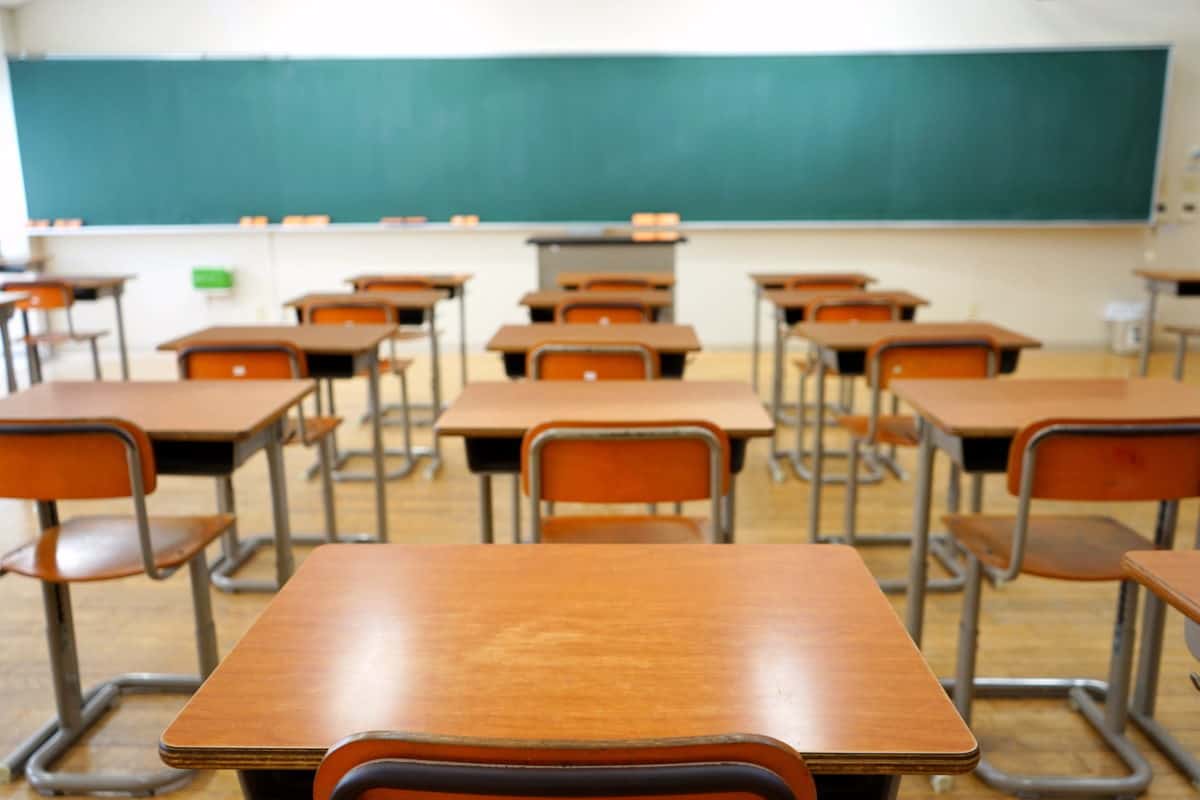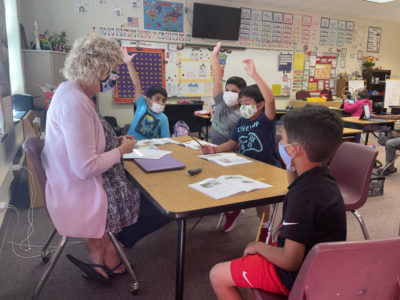
A State Board report to the General Assembly on crime and discipline in public schools shows fewer North Carolina students are being suspended from school and that school crimes are down.
While the report seems positive on its face, several Board members called into question the value of the data — particularly cautioning that the limited available data is clouding inequity and might perpetuate false narratives.
“We said that equity is a part of our strategic plan,” Board member James Ford said. “At some point, we got to be about that life. And I’m not code-switching there. I’m just being honest.”
Several Board members said the report did not adequately break out suspensions by subgroup, did not identify the nature of the offenses, and did not identify the penalties for those suspensions. Not capturing and including this data conceals an important part of the story, many Board members said.
“The information that I think is missing, it concerns me,” Board member Alan Duncan said. “We could lead ourselves to false narratives. The narratives would be that African-American students are suspended at a much higher rate — a four-times higher rate — because they misbehave. That would be the narrative.”
Duncan referenced national and state research showing code of conduct penalties are roughly three times to four times harsher for black students than they are for white students. This would suggest that it is not a greater number of behavioral issues the top-line numbers reveal, but rather harsher penalties for students of color relative to those of white students.
The report shows that disciplinary action was taken for 4,354 total students, with 2,814 of those being black and 654 being white. The ratio of disciplinary action for black students compared to white students is more than 4-1. And Duncan said the number actually might be worse.
He pointed to data in the report showing 1,747 students were placed in alternative schools to avoid long-term suspensions. The report also shows a blanket count of 4,262 students placed in alternative schools for chronic misbehavior, and Duncan wondered whether that figure also subsumed any students who would otherwise have been counted in the disciplinary action numbers.
“I’m not disagreeing that it’s positive that (the numbers are) coming down,” said Duncan, who commended on the report’s treatment of the information it did collect. “But I think we ultimately have to look at a couple of equity issues out of this, some of which we can tell from your data and some of which we cannot.”
Including the nature of offenses and the penalties received for these offenses by subgroup, Board members said, is important to identify any inconsistencies in discretionary discipline.
“Where racism and where inequities persist for students of color … is for subjective offenses. These are categorically what we call UB — unacceptable behavior. Things like disrespect, things like aggressive behavior, things like threatening behavior. That are left up to the perception,” said Ford. “If we don’t spell that out … we are making invisible the way that systemic racism continues to operate in discipline disproportionality.”
Tabari Wallace added that teacher perception drives the inequities between disciplinary penalties for white students and students of color. He spoke about cross-cultural insensitivities, such that students from cultures where it is considered impolite to look someone in the eye could be disciplined for behavior that is not intended as disrespectful. He called for greater cultural training and noted that collecting the additional data could help bear out the need for it.
Board chair Eric Davis said that, while it is important to get this additional data for next year’s report, that the work should not wait until next year.
“This is not unique to North Carolina,” Duncan said. “This is a national concern, it’s a national issue. So the questions really are can we make sure we have a strong handle on our data so we know best how to make sure we apply that equity lens that is so important for all our students.”
What does the report say?
The report states that both the number and rate of reported crimes in North Carolina public schools dropped for the third year in a row, and fewer students received short-term or long-term suspensions than the previous year.
School crime and violence
- The rate of reportable crimes has decreased for the third year in a row.
- The high school crime rate decreased 9.0%, a significant decrease from the previous year’s decrease of 2%.
Suspensions and expulsions
- In 2018-2019, both the rate and number of short-term suspensions for both males and females decreased from the previous academic year.
- Among all grade levels, ninth graders received the largest number of short-term and long-term suspensions for the fifth year in a row. However, ninth graders saw the largest decrease in the number of suspensions compared to the previous academic year.
- Relatedly, the number of long-term suspensions for ninth grade students has decreased 63% since 2014-2015.
- Of the 23 students expelled in 2018-2019, 15 (65%) were black, 5 (21.7%) were white, and two (8.7%) were Hispanic.
- Relatedly, the number of black students expelled has decreased by more than 50% since the 2014-2015 academic year.
- Since the 2014-2015 academic year, there has been a sharp decrease in the number of long-term suspensions for exceptional children.
In-school suspensions
- Since the 2014-2015 academic year, while there has been a sharp decrease in the number of short-term suspensions, there has been a steady increase in in-school suspensions.
Alternative learning program and school placements
- For the 2018-19 school year, black and American Indian students were placed in alternative learning programs at the highest rate (14.5 and 14.4 placements per 1,000 students, respectively), followed by multiracial students.




